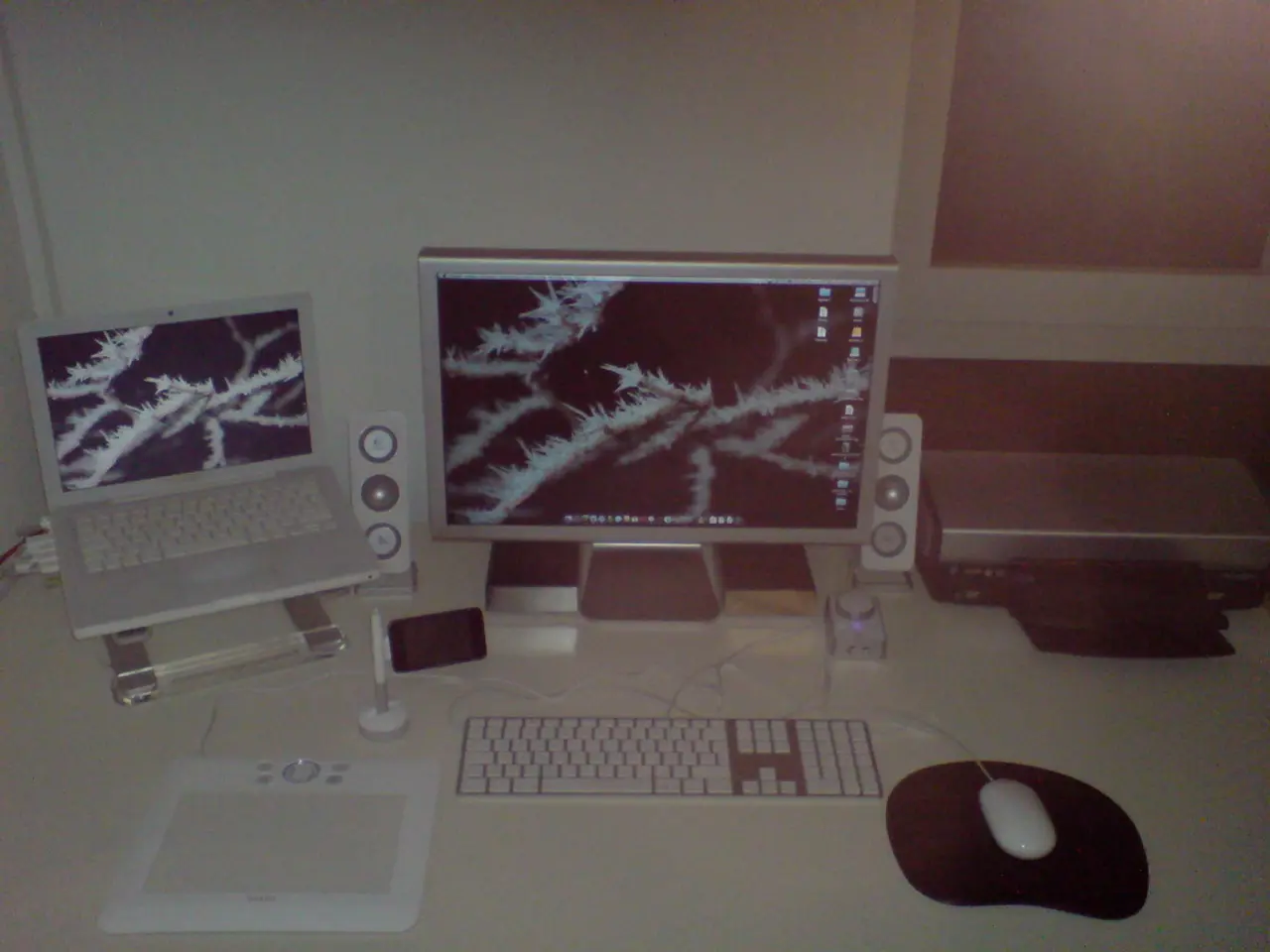Comparing Android TV OS and Tizen TV OS: Which one provides the superior experience?
In the realm of smart TVs, two prominent operating systems stand out: Tizen TV and Android TV. Each offers unique advantages and disadvantages, catering to different user preferences.
Tizen TV, a fourth-generation smart TV platform developed by Samsung, boasts a streamlined, user-friendly interface. The home screen layout is straightforward and easy-to-navigate, with just a few icons at the top of the screen to quickly access all the content available on Tizen TV [1][2][5]. This simplicity and intuitive navigation make it an attractive choice for those seeking a hassle-free smart TV experience.
In contrast, Android TV presents a more customizable and visually engaging user interface, allowing users to personalize their home screens and prioritize content based on preferences [2]. This flexibility appeals to those who prefer a tailored experience.
When it comes to app ecosystems, Tizen TV relies on the Samsung Galaxy Apps store, offering a smaller but curated selection of apps. Due to its exclusivity, app availability is somewhat limited compared to Android TV [2]. However, Tizen TV does have some exclusive Samsung features like S-Voice [2].
Android TV, on the other hand, benefits from the extensive Google Play Store, providing a vast variety of apps, games, and educational content, thanks to a large established developer ecosystem and broad device compatibility [1][2].
Media and features are another area where these two platforms differ. Tizen TV supports a variety of media formats and includes a web browser. It also offers strong integration with Samsung smart devices and the SmartThings smart home ecosystem, along with perks like Samsung Daily+ and ambient modes [1][5]. Android TV, in addition to supporting many media formats, includes Google’s streaming services like YouTube and Google Play Movies & TV, and supports Chromecast built-in for easy casting from other devices [1][3].
Gaming is another aspect where Tizen TV and Android TV diverge. Tizen TV supports gaming but with a more limited selection compared to Android TV. However, it is cloud gaming ready and integrates well with Samsung’s gaming ecosystem [2][3]. Android TV, however, has a distinct gaming advantage due to the expansive Google Play Games library, offering a broader variety of genres and multiplayer options [2][3].
Security and updates are crucial considerations for any smart device. Tizen TV prioritizes security and privacy and offers up to 7 years of software updates, enhancing device longevity [1][3]. Android TV also maintains strong security, but update duration can vary by manufacturer. Google's ecosystem ensures timely updates for core services [3].
Personalization and AI are areas where both platforms offer unique features. Tizen TV is less personalized for Google users but includes generative AI tools and strong smart home integrations via SmartThings [3]. Android TV offers Gemini-enhanced voice control, personalized watchlists, and tight integration with Google Assistant [3].
Device compatibility is another factor to consider. Tizen TV is primarily limited to Samsung devices, limiting its broader availability [2][5]. Android TV, on the other hand, is available on a wide range of devices including streaming sticks, set-top boxes, and TVs from many manufacturers [1][4].
In essence, Tizen OS offers a polished, secure, and Samsung-optimized experience with excellent smart home integration, while Android TV provides a more open, customizable ecosystem with broader app and gaming support. The choice depends on whether you prioritize a seamless Samsung-centric experience or the flexibility and variety of the Google ecosystem [1][2][3][5].
References: [1] https://www.techradar.com/news/tizen-tv-vs-android-tv-which-smart-tv-platform-is-best-for-you [2] https://www.cnet.com/tech/services-and-software/tizen-tv-vs-android-tv-which-smart-tv-platform-is-right-for-you/ [3] https://www.digitaltrends.com/home-theater/tizen-tv-vs-android-tv/ [4] https://www.androidpolice.com/tizen/ [5] https://www.theverge.com/circuitbreaker/2019/3/25/18278668/tizen-tv-vs-android-tv-smart-tv-operating-systems-comparison
Java coding plays a significant role in the customizability and functionality of Android TV, as many of its features are developed with it.
In the realm of smart TVs, Tizen TV's user-friendly design and Samsung-centric ecosystem offer a unique alternative to the more customizable and app-rich Android TV.



